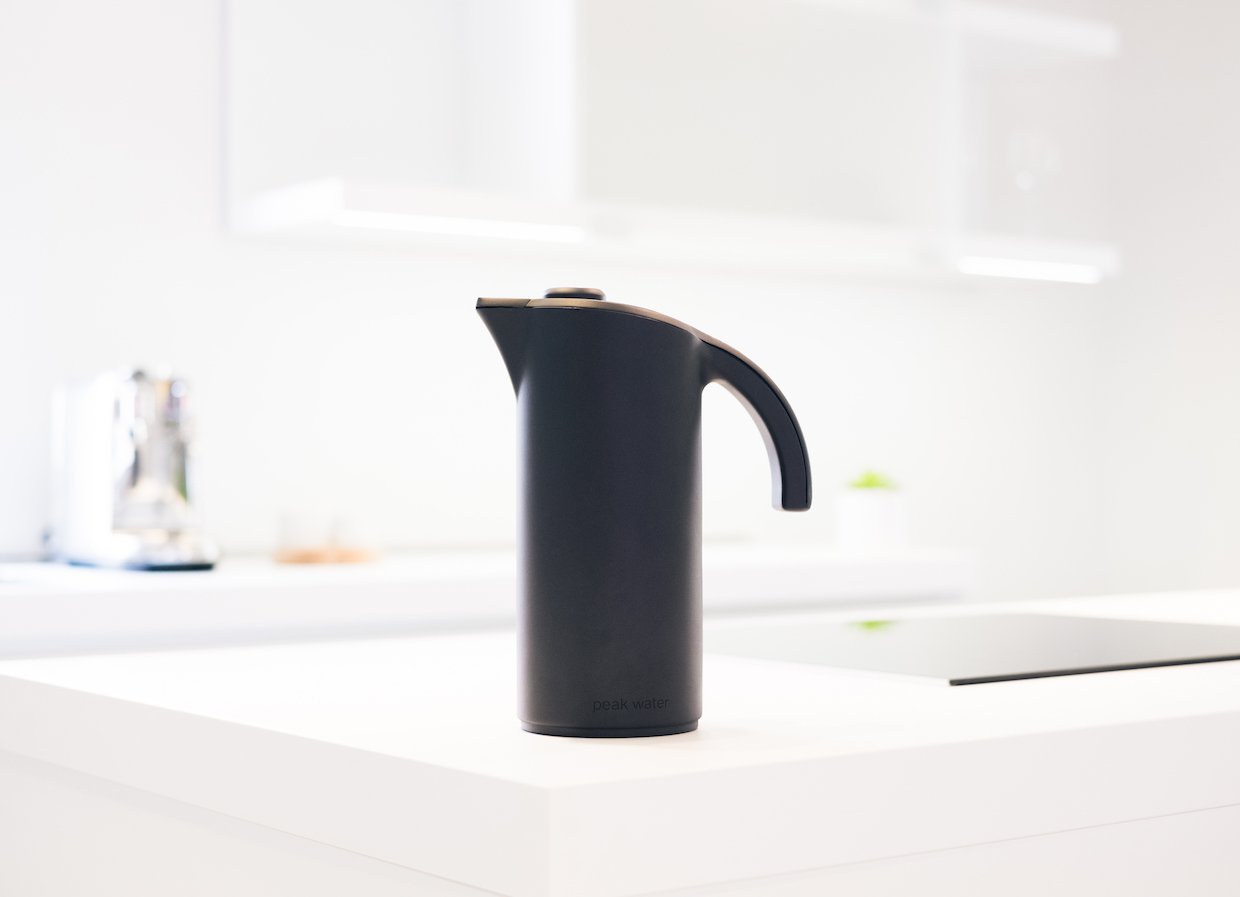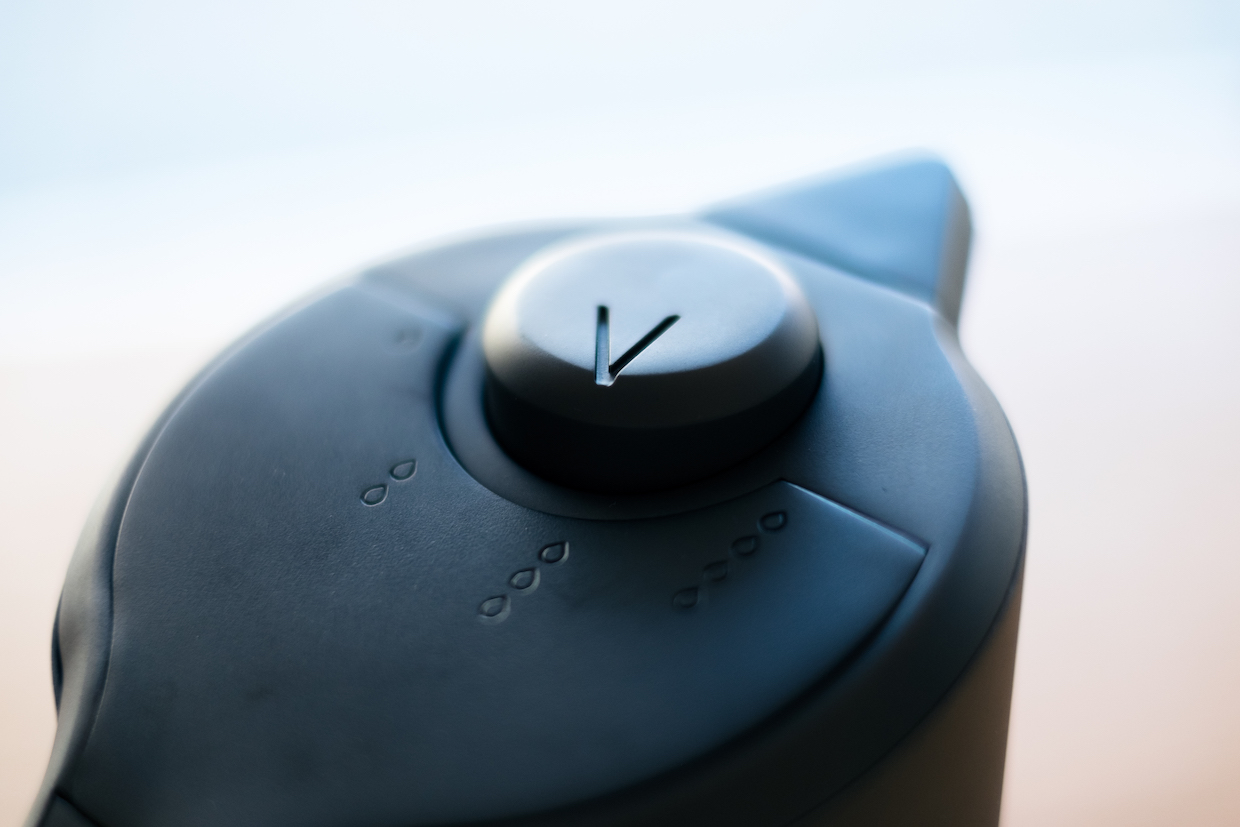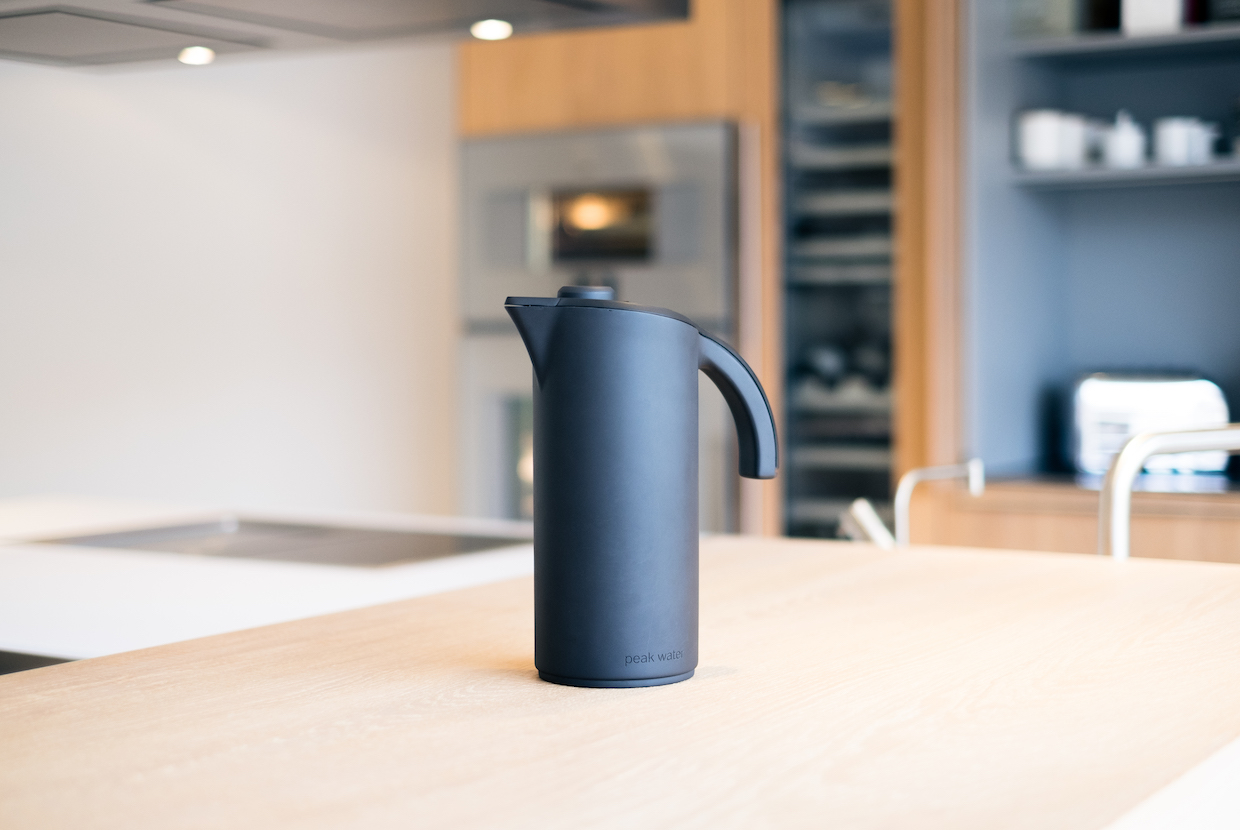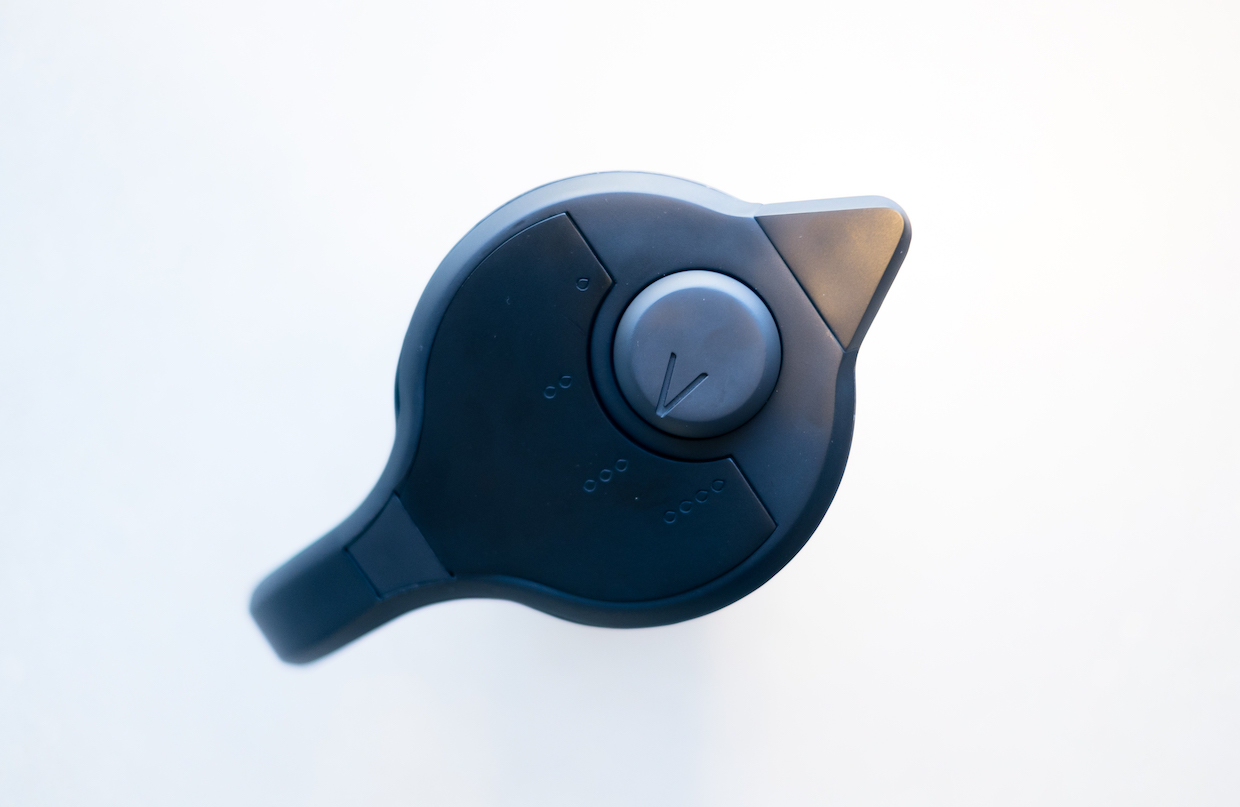
The Peak Water jug prototype. Developed by Maxwell Colonna-Dashwood and Christopher Hendon, authors of “Water for Coffee,” the Peak is entering production following a successful Kickstarter campaign. All photos courtesy of Peak Water.
When three-time UK barista champion Maxwell Colonna-Dashwood and PhD chemist Christopher Hendon co-wrote the book “Water for Coffee” in 2015, the result was increased focus among specialty coffee professionals and consumers alike on the very real effects of water on coffee’s quality.
Lively discussions ignited at professional events and online have continued ever since, achieving a sort milestone as recently as last week in the formation of a dedicated water forum within the influential online community Home-Barista.com. The book also set the stage for a variety of water treatment products, like Aquiem and Third Wave Water, that have since emerged to help people better control this fundamental variable.
Now Colonna-Dashwood and Hendon have returned to make another splash, as it were, with the Peak Water jug, drawing from the knowledge and perspective originally offered in the book and translating it into a handy household-style filter pitcher that aims to cost-effectively optimize regular tap water into something closer to ideal for brewing coffee.
“‘Water for Coffee’ was as much about scoping the water topic out, as fully as possible; opening up the discussion,” Colonna-Dashwood told Daily Coffee News. “It was common, following my talks on the subject around publication of the book, for people to say, ‘Wow, great talk, really interesting. So you spent the talk telling us about all the problems — what solutions and answers do you have?'”
The gravity-fed 1.2-liter-capacity Peak Water jug is not intended to be an end-all solution to water problems, the creators said. The proprietary filter disc that it contains is designed to treat “hard” tap water, though Colonna-Dashwood carefully pointed out that it’s not necessarily the objective “best” for all coffees, as perfection is subjective, and different water formulations will have different effects on different coffees brewed different ways.
Said Colonna-Dashwood, “I have always been keen to say that there isn’t a perfect water, etc., because of the roast feedback loop, etc.”
Yet the Peak Water Jug does what it does at a fraction of the cost of bottled water over time, and without the environmental waste. The jug also offers different settings for tailoring its treatment to suit the specifics of different tap waters from different sources.
As water is fed down into the filter by gravity, the user’s chosen setting determines which among a series of carefully-sized holes are open or closed, directing the flow of water through what the company calls the “filter maze.” Along its way the water interacts with different surfaces made of precise ion-exchange resins, affecting the water’s bicarbonate content, the factor that the company considers most impactful on the finished cup of coffee. The disc also balances water’s pH level, removes undesirable impurities and preserves the minerals that are beneficial to brewing.
Colonna-Dashwood — owner of capsule-focused Colonna Coffee and now author of a second book, the “Illustrated Coffee Dictionary,” published by Octopus Books last year — said that the jug has been on its creators’ minds since the days when “Water For Coffee” was first published and that an informative flexibility is part of the jug’s design.
“We will outline in the manual how various settings may be better suited to espresso or filter,” said Colonna-Dashwood. “We will have our recommended settings but also aim to encourage the user to understand the options and make a personal choice if they wish to do so.”
The project, almost three years in the making, was launched by the company onto Kickstarter last month with a campaign that concluded a few weeks ago having raised over £84,000 (more than $113,000) to fund manufacturing.
“We have been continuing to test the prototypes and make small changes based both on feedback during the Kickstarter campaign and the predefined goals we had set for the product, such as filter time, which we have now managed to get down to five to six minutes on the slowest setting,” Colonna-Dashwood said. “The next step is to finalize the ‘design for manufacture’ before we utilize the Kickstarter funding to press the green button and get the tooling made.”
Campaign backers will be first to receive the jug after the first run of production, which Colonna-Dashwood confirmed still looks to be on track to occur this November. From there, the anticipated retail price is £35-£40 ($50-$60) for a “starter pack” containing the jug and a filter disc, with replacement discs available for £8-£10 ($12-$14), although these prices are subject to change until the company finalizes its production supply chain.
Once the Peak Water jug achieves a regular retail presence, the next step for the product line will be another filter disc for the improvement of soft water. While the timeline for that product is uncertain, the path forward for its design is clear, and will not require an additional crowdfunding campaign, thanks to the structural nature of the first filter. Said Colonna-Dashwood, “We have designed the disc in a way where we can change manufacturing on the details such as flow rate and internal components quite easily, which should make this process easier.”
As for the book that set this tide in motion, Colonna-Dashwood confirmed that “Water For Coffee” is currently out of print, and that the authors are working on a second edition featuring revised and updated content, additional infographics and plans for translations into Spanish, Korean and Chinese. Publication dates are not yet determined. The author, barista and jug designer said that while the book and the jug are standalone products, they are, on a certain level, ultimately linked.
“Peak Water wouldn’t be happening without the ‘Water for Coffee’ book,” said Colonna-Dashwood. “Water For Coffee,’ and the new book and the global input around the topic, will continue to shape Peak Water and new products within the Peak Water range. The water book, however, as I am sure you know, is pretty full-on. It is an industry text book. It has had an amazing impact, but there are more and more people who recognize the importance of water but wouldn’t want to go through the detail [the book] offers. One of the main goals of Peak Water was to create something that improves water for coffee brewing and goes beyond the reach of the Water For Coffee readership, to anyone who recognizes the impact of water on coffee quality.”
Howard Bryman
Howard Bryman is the associate editor of Daily Coffee News by Roast Magazine. He is based in Portland, Oregon.
Comment
1 Comment
Comments are closed.









Like to see an option for remineralizing reverse osmosis water.